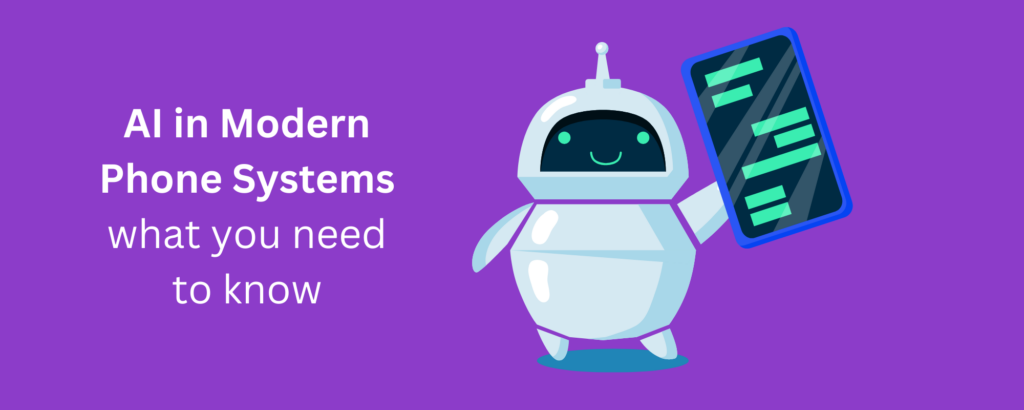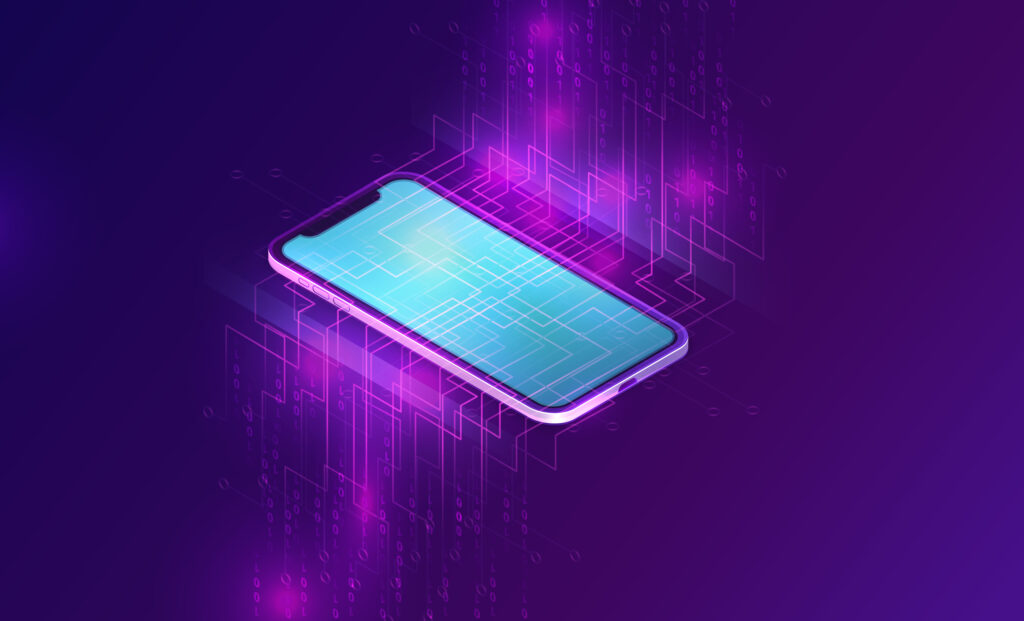Quick Menu

In today’s fast-paced business landscape, the integration of artificial intelligence (AI) into phone systems has become increasingly essential. AI technology brings a multitude of benefits to phone systems, revolutionizing communication and boosting efficiency for businesses of all sizes. Let’s explore why AI is so crucial for phone systems and how it can transform the way companies operate.
Why is AI so crucial for phone systems?
Enhanced Customer Experience: Phone systems have the ability to revolutionise customer interactions by providing personalised and interactive experiences. Through advanced natural language processing (NLP) and sentiment analysis, It can understand the nuances of customer inquiries, detect emotions, and respond appropriately. By offering tailored solutions and empathetic responses, businesses can significantly enhance customer satisfaction levels, leading to increased loyalty and positive brand perception.
Intelligent Call Routing: AI algorithms have the capability to intelligently route calls based on various factors such as caller history, agent skills, and caller intent. By leveraging predictive analytics and machine learning, AI-powered call routing can match callers with the most suitable agents or departments in real-time. This ensures that callers are connected to the right person quickly, leading to shorter wait times, reduced call abandonment rates, and improved first-call resolution rates.
Predictive Analytics: AI-driven analytics tools empower businesses to extract valuable insights from vast amounts of call data. By analyzing call patterns, trends, and customer behavior, AI can predict call volumes, peak times, and customer preferences with remarkable accuracy. Armed with this predictive intelligence, businesses can optimize staffing levels, adjust resource allocation, and proactively address potential issues before they escalate. This not only improves operational efficiency but also enables businesses to deliver a more personalized and proactive customer experience.
Automated Assistance: AI-powered virtual assistants or chatbots have the capability to handle routine inquiries and tasks autonomously, without the need for human intervention. These intelligent bots can assist customers with FAQs, appointment scheduling, order tracking, and more, round-the-clock. By automating repetitive tasks, businesses can free up agents’ time to focus on more complex and value-added activities, such as problem-solving and relationship-building. This not only boosts agent productivity but also ensures consistent and efficient customer service delivery.
Continuous Improvement: One of the most compelling aspects of AI is its ability to learn and evolve over time. Through continuous feedback loops and iterative learning algorithms, AI-powered phone systems can refine their performance and accuracy with each interaction. By analyzing customer feedback, call transcripts, and system performance metrics, businesses can identify areas for improvement and fine-tune their AI models accordingly. This ongoing process of optimization ensures that AI-driven phone systems remain adaptive, responsive, and effective in meeting the evolving needs of customers and businesses alike.
What integrations can you use for Voip phone systems that have AI?
VoIP phone systems that leverage AI offer a wide range of integrations to enhance functionality and streamline operations. Some common integrations include:
1. CRM Integration:
Integrating with Customer Relationship Management (CRM) platforms such as Salesforce, HubSpot, or Zoho allows businesses to synchronize call data, customer interactions, and sales activities seamlessly. AI-powered VoIP systems can automatically log calls, update customer records, and provide real-time insights to sales and support teams, enabling more personalized and effective communication.
2. Marketing Automation:
Integration with marketing automation platforms like Marketo or Pardot enables businesses to track and analyze call data in the context of their marketing campaigns. AI-driven VoIP systems can identify leads, attribute calls to specific campaigns, and provide valuable insights into lead quality and conversion rates, empowering marketing teams to optimize their strategies for better results.
3. Helpdesk and Ticketing Systems:
Integrating with helpdesk and ticketing systems such as Zendesk or Freshdesk allows businesses to streamline customer support workflows and improve resolution times. AI-powered VoIP systems can create tickets automatically from incoming calls, route calls to the appropriate support agents based on ticket priority or customer history, and provide agents with relevant caller information to resolve issues more efficiently.
4. Speech Analytics:
Integration with speech analytics platforms like CallMiner or Verint enables businesses to analyse call recordings and extract valuable insights from customer conversations. AI-driven VoIP systems can transcribe calls, identify keywords and phrases, detect sentiment and emotions, and flag potential issues or opportunities for further action. This helps businesses understand customer needs, identify trends, and make data-driven decisions to improve service quality and customer satisfaction.
5. Chatbots and Virtual Assistants:
Integrating with chatbot platforms like Landbot or Intercom enables businesses to offer self-service options and automate customer interactions through chat channels. AI-powered VoIP systems can seamlessly transition between voice and text-based interactions, allowing customers to interact with virtual assistants via phone calls, SMS, or chat apps. This provides customers with immediate assistance, reduces wait times, and enhances overall customer experience.
By leveraging these integrations, businesses can unlock the full potential of AI-powered VoIP phone systems and deliver more personalized, efficient, and seamless communication experiences for their customers and employees.

AI is a transformative force that has the potential to revolutionise phone systems and reshape the way businesses communicate and interact with their customers. By harnessing the power of AI, businesses can unlock new opportunities for growth, drive operational efficiencies, and deliver unparalleled customer experiences in today’s digital age.
Frequently Asked Questions
AI-powered VoIP phone systems offer integrations with CRM platforms, marketing automation tools, helpdesk systems, speech analytics platforms, and chatbot solutions, among others, to enhance functionality and streamline operations.
CRM integration allows businesses to synchronize call data, customer interactions, and sales activities seamlessly. AI-powered VoIP systems can automatically log calls, update customer records, and provide real-time insights to sales and support teams, enabling more personalized and effective communication.
Speech analytics integration enables businesses to analyze call recordings and extract valuable insights from customer conversations. AI-driven VoIP systems can transcribe calls, identify keywords and phrases, detect sentiment, and flag potential issues or opportunities for further action, helping businesses understand customer needs and make data-driven decisions.
Integrating chatbots allows businesses to offer self-service options and automate customer interactions through chat channels. AI-powered VoIP systems can seamlessly transition between voice and text-based interactions, providing customers with immediate assistance, reducing wait times, and enhancing overall customer experience.
Integrating marketing automation tools allows businesses to track and analyze call data in the context of their marketing campaigns. AI-driven VoIP systems can identify leads, attribute calls to specific campaigns, and provide valuable insights into lead quality and conversion rates, empowering marketing teams to optimize their strategies for better results.
